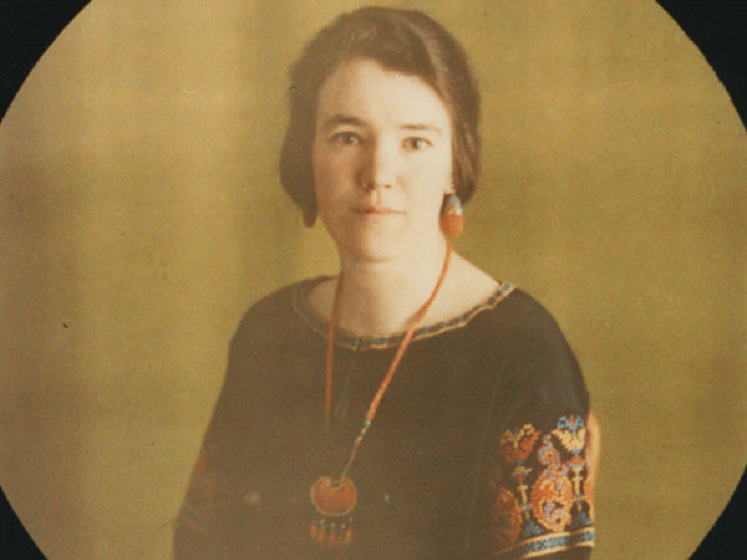 Eileen Power, 1922
Eileen Power, 1922
Eileen Power was a respected historian who became LSE’s second (and second female) Chair in Economic History in 1931 and a BBC radio broadcaster. As a response to the First World War, her medieval history research took a global yet social approach.
Early life
Eileen Power (1889-1940) attended the Oxford High School and went on to Girton College, Cambridge to study history in 1907, funded by a Clothworkers Scholarship. She was born in Cheshire, the eldest of three sisters. After her father was arrested for fraud and became bankrupt, they moved to the maternal family home in Oxford, but the girls’ mother died when Eileen was 14. After Girton, Eileen spent a year in Paris at the Ecole des Chartres 1910-11 and began a Shaw fellowship at LSE in 1911, a studentship specialising in women’s history funded and designed by Charlotte Shaw.
The First World War and the 1920s
Eileen Power taught at both Cambridge and LSE during the First World War. Student numbers at LSE dwindled but wartime in Cambridge gave Eileen the opportunity to teach economic history more widely. She also lectured at the League of Nations. Her response to war as a historian was to favour an international yet social perspective, rather than the nationalism that had led to war and fragmentation.
Eileen returned to LSE full time to teach economic history in 1921. Her heart had been with Cambridge but the university had refused to give women degrees, unlike LSE who had since its inception. Before that, she had carved a successful career as a medieval social historian, becoming Director of Studies in History at Girton College, Cambridge and travelling the world with the Kahn Travelling Fellowship in 1920. She met Gandhi in India and visited Japan, but China was the favourite place from her travels.
Eileen Power’s research focused on medieval women within the context of the medieval world at large. She published Medieval People in 1924 and also produced children’s history books, Boys and Girls of History - and BBC radio broadcasts - with her sister Rhoda Power. The idea was to bring history to life for children.
The 1930s at LSE
At LSE, Eileen was a contemporary and collaborator with other well-known names from the 1930s like RH Tawney, Harold Laski and Bronislaw Malinowski. Her LSE lectures were immensely popular and she spent a term teaching at Barnard College in the USA in 1930, where she was so popular that she was invited to stay. However, she returned to LSE and became the second woman to be appointed to the Chair in Economic History, in 1931.
Despite her standing, she was paid less than male colleagues and career progression was slower for women. She married former student MM Postan in 1937 and remained with LSE, using her influence to get him a similar post at Cambridge. She co-created the Economic History Society and Economic History Review journal which she worked on through the early part of the Second World War. Her work was cut short by her early death in 1940 aged 51.
Read more
A London Lecturer at Barnard – Eileen Power and the USA by Rozemarijn van de Wal on the LSE History Blog
24 LSE women in 1918 by Sue Donnelly on the LSE History Blog
University of London Leading Women gallery: Eileen Power
A Woman in History: Eileen Power 1889-1940 by Maxine Berg